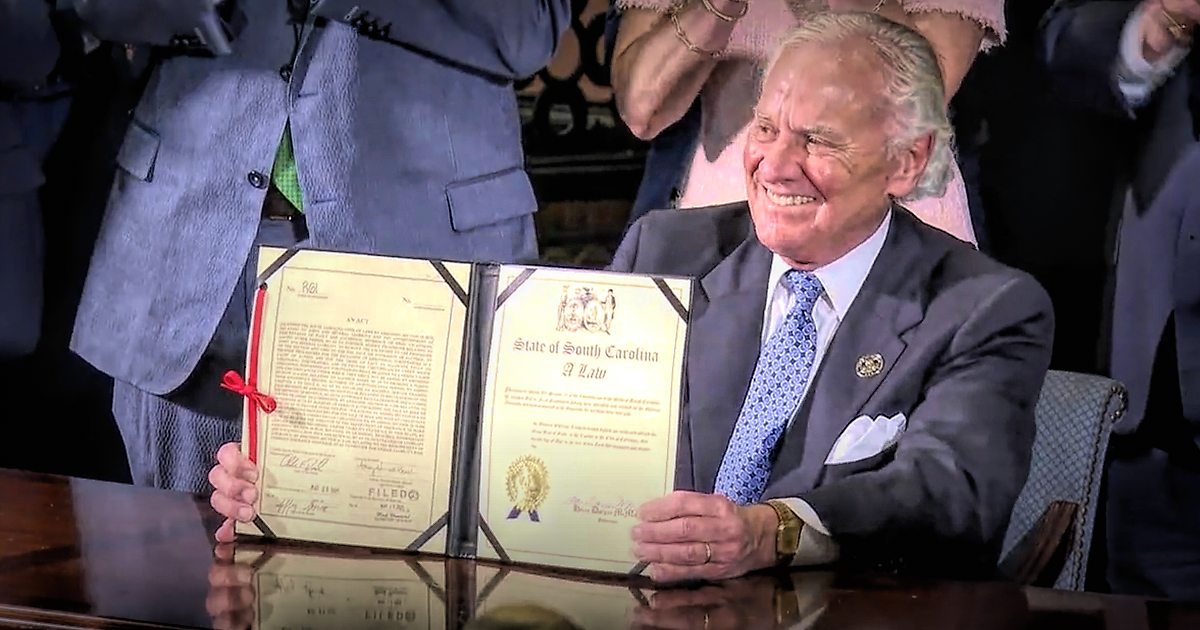On May 28, 2025, Governor Henry McMaster signed Act 42 (H.3430) into law, bringing significant changes to South Carolina’s liquor liability and tort system. These reforms, which take effect January 1, 2026, affect both businesses that sell alcohol and individuals involved in civil claims tied to alcohol-related incidents.
The goal of Act 42 is twofold: to reduce the heavy insurance burden on businesses while also ensuring that liability in lawsuits is shared fairly and proportionately.
Several key changes that businesses may experience include:
Lower Liquor Liability Insurance Requirements
Previously, businesses serving alcohol were required to carry $1 million in liquor liability coverage. Businesses may combine the measures below, but they must maintain at least $300,000 in coverage. Under the new law, establishments can reduce that amount if they adopt certain risk-mitigation practices, including:
- Stopping alcohol service by midnight (reduces coverage by $250,000)
- Training all servers within 60 days of hire (reduces coverage by $100,000)
- Keeping alcohol sales under 40% of total revenue (reduces coverage by $100,000)
- Using forensic digital ID scanners between midnight and 4:00 a.m. (reduces coverage by $100,000)
- Operating as a 501(c)(3) nonprofit or holding a special event license (reduces coverage by $500,000)
Mandatory Server Training and Compliance Rules
The law now requires alcohol server training and imposes administrative penalties for violations. This ensures establishments follow safe serving practices and helps reduce risks of overservice or sales to underage individuals.
Clarified Liability for Alcohol Sales
The law also reinforces that businesses cannot knowingly sell alcohol to intoxicated individuals. Violations can bring penalties and increase liability risk.
The types of businesses directly affected in South Carolina include:
- Bars and Pubs – primary alcohol sellers with late-night hours.
- Restaurants – especially those with significant alcohol sales.
- Nightclubs and Music Venues – where alcohol is a central revenue source.
- Hotels and Resorts – those with on-site bars, lounges, or event catering.
- Event Venues & Banquet Halls – hosting weddings, parties, and large gatherings.
- Collegiate Sports Venues – now regulated under the law when serving alcohol.
- Liquor Stores – if involved in liability-related claims tied to alcohol sales.
- Breweries, Distilleries, and Wineries – with on-site tastings, taprooms, or events.
- Nonprofit Organizations 501(c)(3) – hosting fundraising events with alcohol.
- Festivals & Fairs – operating under special event alcohol licenses.
- Private Clubs – country clubs, yacht clubs, and other membership-based venues.
- Caterers – providing alcohol service at private or public events.
- Casinos or Gaming Establishments (if operating in SC) – where alcohol sales accompany entertainment.
The differences adopted in the Act 42 law also affect liability in certain civil cases, as proportional fault replaces “deep pockets” liability. Under prior law, a defendant could be held responsible for the entire amount of damages, even if they were only partly at fault. Act 42 changes this by holding a defendant found less than 50% at fault as responsible for their share of damages, while a defendant found 50% or more at fault may still face full liability. This reform helps protect businesses and individuals from being unfairly saddled with the full cost of an incident. Defendants may now argue that someone not named in the lawsuit (a “non-party tortfeasor”) contributed to the injury. Courts can apportion fault to that person, ensuring a fairer distribution of liability.
As related to DUI offenses, if a driver charged with certain driving under the influence offenses is involved in a case, they must be included on the verdict form. Additionally, if both a licensed alcohol provider and a DUI defendant are found liable, the licensee may be jointly responsible for 50% of the actual damages.
For South Carolina businesses that sell alcohol, these reforms can significantly lower insurance costs and create more predictable liability outcomes. By investing in employee training, responsible serving practices, and tools like ID scanners, businesses not only enhance community safety but may also protect their bottom line.
For those injured in alcohol-related accidents, these changes ensure claims are handled with greater fairness, with fault assigned based on the actual responsibility of each party involved. At the same time, injured individuals still retain the right to seek compensation when businesses or individuals act negligently.
How The Floyd Law Firm Can Help
At The Floyd Law Firm, we have decades of experience advising South Carolina businesses and representing individuals in civil and criminal matters. Whether you are a business owner making adjustments under the new compliance requirements, an individual injured in an alcohol-related accident, or someone facing criminal charges such as DUI – our attorneys can guide you through the complexities of the law and protect your interests.
These changes take effect for claims arising after January 1, 2026. Now is the time for businesses to review their policies, update training programs, and prepare for the new legal landscape.



